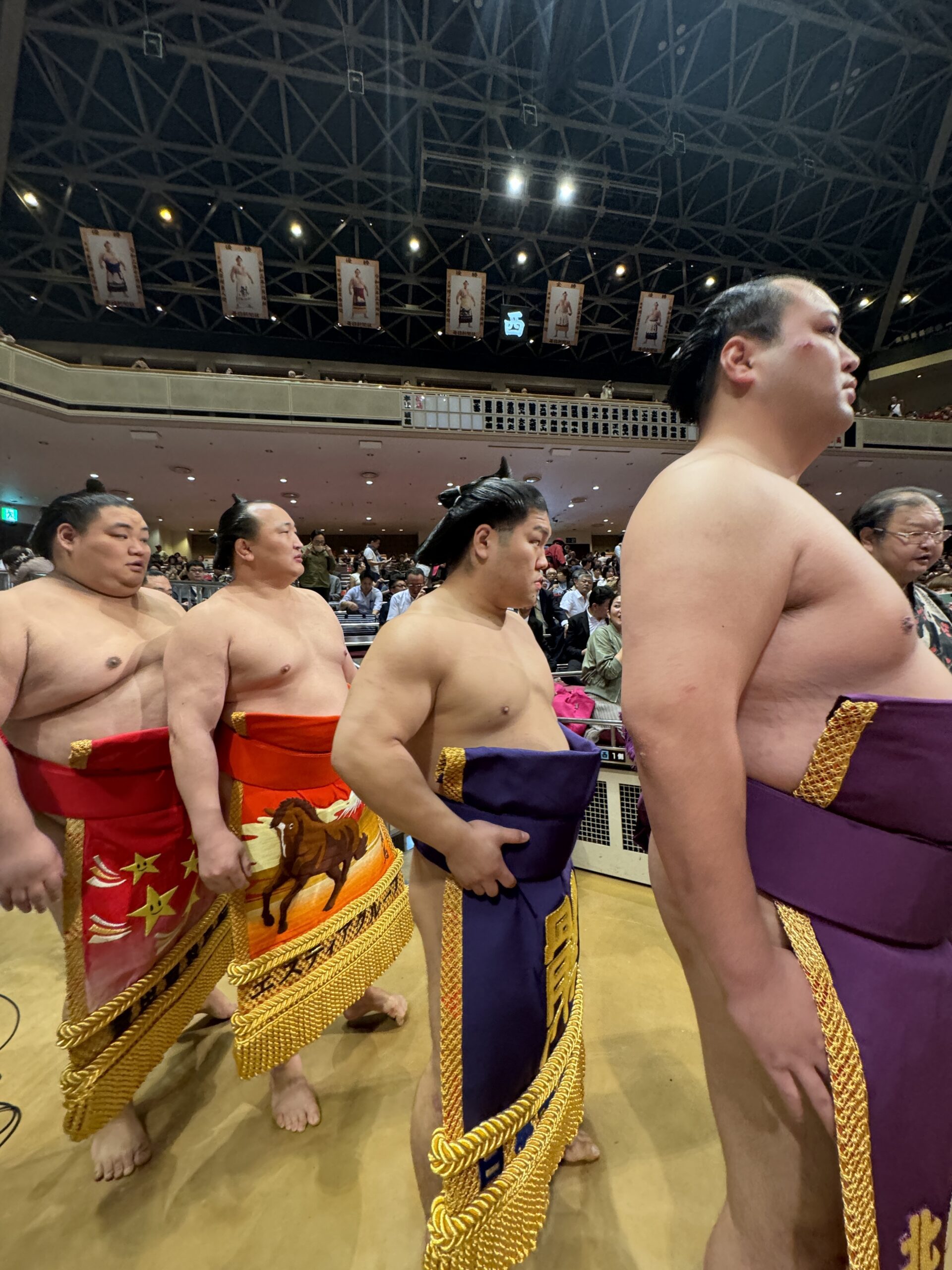
06 Dec Has Overtourism Ruined Japan? Not So Much

With the cost of vacationing in the U.S. escalating and the Japanese yen at a 38-year low against the U.S. dollar, there’s never been a better time for Americans to visit Japan. But in recent months, the global media’s been selling the overtourism in Japan narrative so hard that I wasn’t sure what to expect when we departed for a month-long trip to The Land of the Rising Sun in June. As Chris Broad, host of the popular Abroad in Japan YouTube channel, recently said of the Japan overtourism hysteria, “If we were to believe every headline, and there are many, Japan has become a real live hellscape.â€
Travel editors once aimed to inspire us to travel. Now, too many encourage us to stay home and reduce our carbon footprints or to explore closer to home. Overtourism is a real problem in places, but it’s also being overhyped in others, like Japan. I saw few, if any, examples of bad tourist behavior in Japan. Ibiza it is not. But you wouldn’t know that from surveying recent headlines. The smug headline of a recent article in The New York Times on overtourism, which referenced a new initiative to cap the visitor numbers at Mt. Fuji, was, “Why You’ll Pay More and Behave Better When You Travel This Summer.†You got that? You, the uncouth heathen are going to behave whether you like it or not! While we were in Kyoto, a city that Yahoo News recently trashed as “ruined†by overtourism, the Times published another piece about overtourism in Japan, implying that Japan and particularly Kyoto are now best avoided due to overcrowding.
I had to laugh, because on the morning that piece came out, we spent hours with Yayoi Uchikata, a Kyoto native who belongs to a club of local guides who offer free tours to visitors because they enjoy interacting with foreigners and showing off their city. (Such clubs exist across in Japan.) Afterward, I had one of the best lunches of my life—a bounty that included a bowl of homemade soba noodles, a beef donburi bowl, and a tasty salad—at a 5-table restaurant called ShÅraku for the equivalent of $6. The proprietor thanked me so profusely after the meal, that I wondered if she hadn’t gotten the memo about what a horrible scourge overtourism represented to her city.

owner of ShÅraku

delicious lunch at ShÅraku
Some of the apocalyptic pieces about overtourism in Japan are laughable. Take for example, one recent story in the Guardian with the headline, “‘A Free for all’ Japan divided as return of tourists brings Instagrammers and liter.†Tellingly, it wasn’t a Japanese person who offered the newspaper its “free for all†money quote but rather a Canadian, Peter MacIntosh, who…wait for it, organizes geisha-themed walking tours in Kyoto! The irony of a foreigner promoting geish tours complaining about poorly behaved tourists was apparently lost on the good folks at the Guardian.
For its part, The Washington Post got in on the Japan overtourism crisis hype with a piece headlined, “Japan, famously polite, struggles to cope with influx of tourists.†One of the more ludicrous nuggets of evidence the newspaper that broke the Watergate scandal scoop presents as evidence is a claim that the famously hungry deer in Nara, Japan’s ancient imperial capital, are allegedly no longer interested in the deer crackers tourists feed them. Their evidence is a single tweet from a personal fitness trainer claiming as much. I visited Nara just two weeks after the article was published and I’m happy to confirm that the deer I saw were as hungry as ever and were gleefully assaulting tourists brandishing crackers, as you can see from the video I took there.
Overtourism is, in my experience, most problematic in picturesque small towns that’ve become famous on social media, in spectacular national parks and popular trails, and at specific tourist attractions in popular places. But the overtourism hype becomes ridiculous when prominent media outlets assert, as many have, that entire countries or large cities are “ruined†by overtourism. Rather than pinpoint exactly where overtourism is an issue and offer tips to navigate these places or suggest alternatives, some in the media industrial complex hope we will simply stay home and save the planet.
In the Times overtourism piece, they quote a Dutch tourist who complained that Kiyomizu-dera, one of Kyoto’s iconic temples, is a “disaster†due to overcrowding. The author didn’t mention that the temple opens at 6 a.m. each day. I was there twice, once at 6:30 a.m., and again another day at 10 a.m. It was nearly empty at 6.30, but indeed, it was a mess of tourists by 10 a.m. Sometimes the solution to overtourism woes is as simple as dragging your backside out of bed earlier than you prefer. In any case, there are 1,600 temples in Kyoto and only five to ten of them are jammed with tourists.
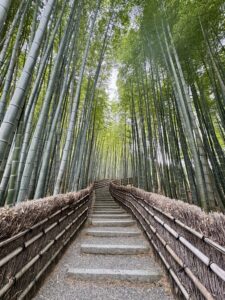
Tokyo and Kyoto get all the headlines but there are many places in Japan that aren’t crushed with tourists. Atmospheric Koyasan, a UNESCO World Heritage site that is the nerve center for the Shingon sect of Buddhisim, has 117 temples and there were as many monks as tourists when we visited. We discovered that historic cities like Kanazawa, Nikko, Matsumoto, and Takayama are full of attractions and Michelin-worthy restaurants and are far from overrun with tourists. And in car-free Kamikochi, in the Japanese Alps, we hiked alongside Japanese snow monkeys on pristine alpine trails to fantastic and remote riverside eateries, where $5 bought us fortifying and delicious lunches. And have I mentioned that there is NO tipping in Japan?
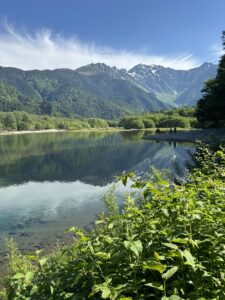
We visited just one place, a small town called Shirakawa-go that felt spoiled by overtourism, due to the crushing burden of Chinese package tourists on bus holidays. But two other nearby villages—Ainokura and Suganuma— which are also recognized as UNESCO World Heritage sites thanks to their charming, A-frame gasshozukuri (the term means hands placed together in prayer) style homes were just as nice as Shirakawa-go, though smaller and blissfully devoid of tourists.
Gaining UNESCO world heritage status is supposed to help preserve places like Shirakawa-go but gaining the UNESCO imprimatur can also effectively destroy small places that aren’t equipped to handle many busloads of tourists. The bigger the place, the more impervious it is to overtourism woes and so, in Tokyo, the world’s largest city, tourist arrivals can set records and yet the place still feels authentically Japanese.
Japan was closed to foreign visitors for 2.5 years during the Pandemic, and visitor numbers reveal that 17.7 million tourists, including 296,000 Americans, entered Japan during the first six months of 2024, a 6.9% increase over 2019 figures. Tourism accounts for about 7.5% of Japan’s GDP. Employment in the sector is forecasted to surpass 6 million jobs, or nearly one out of ten in the country. I asked many Japanese how they feel about rising visitor numbers and heard few complaints. Most are proud of their country and recognize that their economy needs tourists.
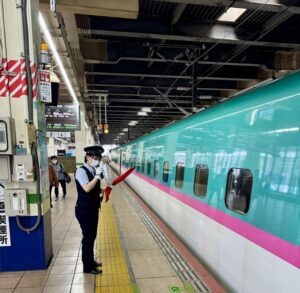
When I was a business school student at Villanova many years ago, Japan, not China, was considered America’s main economic rival. My professors often held up Japan as a country we needed to study and learn from. Since roughly the mid-1990s, when Japan’s economy tanked, many in the West have largely forgotten about Japan, openly disparaged it, or focused only on its influential popular culture. Why has Japan fallen out of favor in the media? Is it because Japan has a strict immigration policy, or because Japan has capital punishment with death by hanging for condemned criminals, or because gay marriage is illegal or because the government still stubbornly subsidizes its whaling industry under the dubious guise of “scientific research†or because it is a male-dominated society? I don’t know, but none of these unfortunate realities impact travelers.
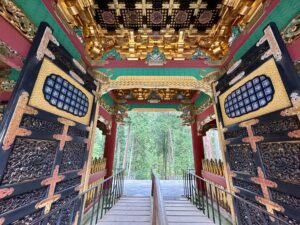
Japan rarely makes headlines in America for anything positive these days, but we still have plenty to learn from the Japanese. Though there is no tipping, we often got far better and friendlier service than we do in American restaurants, and for a fraction of the price too. There are few trash bins in Japan, but you rarely see liter on the streets. The Japanese speak quietly, if at all, on trains and in other public places, so as not to disturb others. As Pico Iyer said in his book, A Beginner’s Guide to Japan, “More important than learning to speak Japanese when you come to Japan is learning to speak silence.â€
I’ve always appreciated the fact that America is a country where individual rights and freedoms are protected. But after seeing the culture of kindness and consideration in Japan, I realize there’s something to be said for their collectivist mindset too. Iyer calls the Japanese both the strictest and kindest people he knows and I agree. At times, I was driven crazy by the Japanese predilection for inflexibility and strict adherence to rules. For example, none of the Japanese car rental companies that offer one-way rentals would rent to us because we only had American driver’s licenses and copies (not originals) of our international driver’s licenses. For these employees, the idea of breaking protocol was unthinkable.
One night, a cashier in a convenience store was genuinely shocked when I unwrapped and started to eat an ice cream bar while I was waiting in a long line, before I had paid for it. She didn’t speak English, so she went and found a colleague who did. “You can’t do that,†said the other woman. “I’m very sorry, but I already did,†I said, feeling genuinely guilty that I’d forgotten Japanese protocols. “Okay,†she said. “But please don’t do it again.†I had saved the ice cream bar’s box so they could scan it, but nevertheless, they seemed genuinely dismayed and aggrieved by my conduct, as though I’d exposed myself or had crapped on their toilet seat.
This strong sense of decorum and the pressure to be polite might drive some people crazy but it also makes Japan a place where things run smoothly. The punctuality is stunning. I expected the long-distance trains to run on time—and they did, to the second—but I remain amazed that the buses and subways are equally punctual. The culture of conformity, responsibility, and common consideration has its perks.
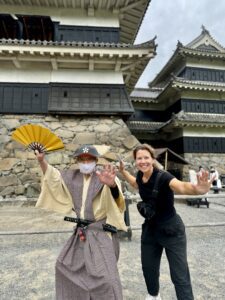
There’s a growing movement to discourage carbon-intensive international travel. Indeed the two most popular comments for this year’s New York Times 52 Places to Go list were from readers suggesting that everyone should stay closer to home to be more environmentally responsible. This sentiment was also the gist of a recent piece in Axios with the headline, “There’s too much tourism.†The piece has no mention of the benefits of learning about other parts of the world or the importance of travel to the global economy. And the author quotes Christopher Gaffney, a hospitality professor at NYU, who says, “You might decrease your knowledge of the planet, but increase your knowledge of your neighbors. And that’s just as valuable.â€
I looked up Mr. Gaffney on Linkedin and note that he’s an admitted globetrotter who has been a visiting professor in Zurich and Rio de Janeiro and says on his profile he’s “spent much of his life traveling with intention.†So, while he’s frolicking on Copacabana Beach, you should stay home and get to know your neighbors. I already know my neighbors well enough, and I’m sorry but leaving my hometown of St. Petersburg, FL for say, Boca Raton isn’t a substitute for the kind of enriching, educational foreign travel that I’ve grown addicted to.
I suspect that Mr. Gaffney and many of the travel editors carping about overtourism and counseling us to stay close to home aren’t curtailing their foreign travel plans. Perhaps they’re pushing the overtourism narrative to keep you and me out of their way? It’s a shame because international travel remains the world’s best university and there are few better classrooms than Japan.
